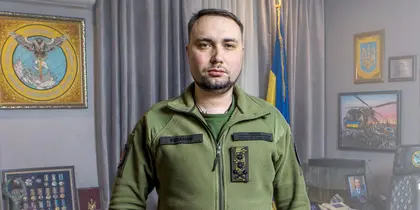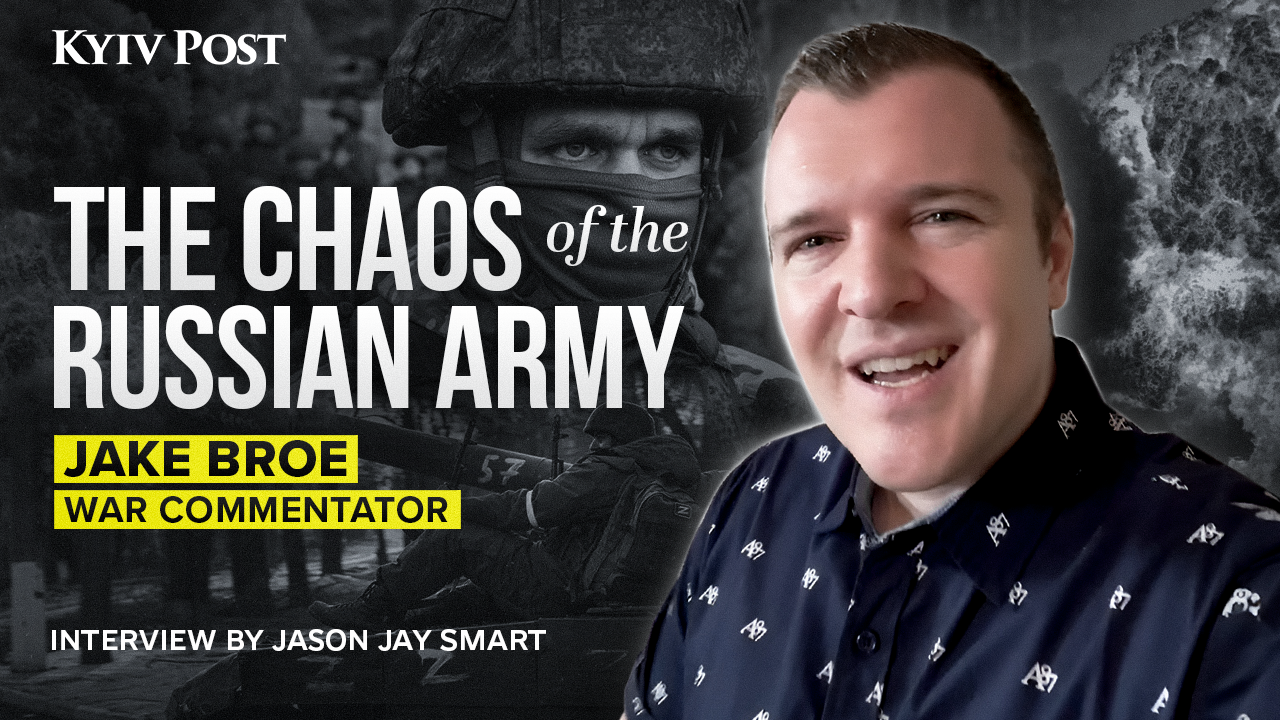The head of the Main Intelligence Directorate of Ukraine (HUR), Kyrylo Budanov, believes the world is fast approaching the conditions for a “global war.”
“This is my subjective assessment: according to the totality of geography, we see several conflicts that, at first glance, seem to be regional, except for Ukraine, but they are all interconnected by the same countries involved in these processes,” he said in an interview with Ukrainska Pravda.
JOIN US ON TELEGRAM
Follow our coverage of the war on the @Kyivpost_official.
“So yes, I believe we are still approaching a global war fairly quickly,” he added.
He also discussed other major issues, such as the impact of the war in Israel on Ukraine, the prospects for future military assistance to Ukraine, the urgent requirement for air defense during the winter period, and Russia's available resources for the war with Ukraine.
Kyiv Post has highlighted key points from this interview below.
“Battle for electricity” ahead
Russia has not changed its intention to plunge Ukraine into darkness, so this winter Ukrainians will once again face a battle for electricity.
“But there are no special adjustments in their plans, so they will continue to do so this season,” Budanov said.
Russia has already restored a certain supply of missiles. According to Budanov, it will be quite enough to create very real problems not only for the Ukrainian energy sector but also for the oil and gas sector, industrial enterprises, and military facilities.

From Plywood to the Battlefield: Russia’s Cheap Gerbera Drones Challenge Ukraine’s Air Defenses
“They have enough forces and resources because they have recently carried out limited missile strikes.”
Ukraine’s counteroffensive: “We are not lagging behind, but we are out of schedule”
In contrast to previous interviews, Budanov refrained from making predictions about the war's end. In his earlier interviews, he stated that Ukraine had every chance of ending the war before the end of 2023. However, he now says that the counteroffensive is “out of schedule.”
“There are objective and subjective reasons – everything is complex. But, sorry, most of the explanations for this are state secrets, and it's just not for public discussion. Over time, all of this will become clear,” Budanov said.
“Then how long do we expect to be off schedule?” the Pravda journalist asks.
“We've deviated from it. We are not far behind, but we have lost our way. This is a completely different interpretation,” Budanov replied.
Ukraine has no cause for concern if Hamas - Israel conflict is brief
According to the head of HUR, the pace of arms supplies to Ukraine depends on the duration and scale of the Israeli-Palestinian conflict.
“My subjective opinion is that if the conflict is limited in time, lasting only a few weeks, then, in principle, there is nothing to worry about,” Budanov said.
“But if the situation drags on, it is quite clear that there will be certain problems because not only Ukraine will need to be supplied with weapons and ammunition.”
Russian involvement in the Israeli-Palestinian War
Budanov is convinced that Russia is indirectly involved in the Israeli-Palestinian escalation. Firstly, according to the latest HUR findings, weapons captured on the battlefield in Ukraine were transferred by the Russians to the Hamas group, most of which are infantry weapons.
“There is some information that some things went to Hezbollah, but so far, we do not know for sure.”
Among other things, Budanov pointed out other factors that indicate Russia's involvement in the Middle East escalation.
“Everyone could see the video on social networks—absolutely, let's just say, a natural tactic for our region and absolutely unnatural for the Middle East when FPV drones were used against armored vehicles,” he said.
“This is the know-how [gained in] our war after all. No one but the people who went through our theater of operations could do this. Since we weren't there, it means they were Russians.”
Furthermore, two significant events pointing to Russia's involvement include the official launch of Russian propaganda broadcasts in Arabic by the Sputnik station in Lebanon and the relocation of a Russian spy satellite to a geostationary orbit over Israel on Sept. 24. This satellite is equipped for electronic reconnaissance and signal interception.
Russia can wage the war “without issue” until 2025-2026
From a purely economic point of view, Russia, according to the Budanov, can afford to fight until 2025. In terms of the number of vehicles, it can last until 2026 at the maximum. Putin calls on huge reservoirs of manpower that will obviously last for a long time.
“But no matter who says it, if we evaluate our human resources together, it will also be there for a long time. Our country is not so small,” he said.
“Another question is whether the Russian Federation is ready to go to the upper limit, to the last [man]?" Budanov added.
Budanov has built an enigmatic reputation since the launch of Russia’s full-scale invasion, saying little publicly but making sure when he does that it packs a punch.
Most recently he marked Ukraine's Military Intelligence Day with a cake, blowing out the candles accompanied by the sound of an explosion. A faint smile graced his face as a festive melody fills the scene.
Perhaps most bizarrely, he was also once interviewed with a frog casually chilling behind him in a tank.
You can also highlight the text and press Ctrl + Enter









